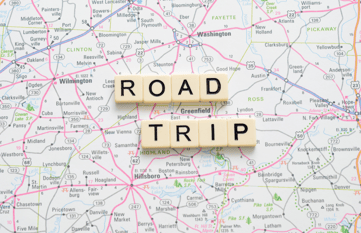

Think about planning interesting “field trips” or vacation day trips.
It’s ironic that history classes tend to be among the most boring for students because instead of experiencing LIVING history they often only read about it in thick textbooks laden with dates and facts.
Except for those who live in truly remote locations, many people are within day-trip driving distance of some significant historical or cultural landmark, museum, battlefield, etc. While you can often add an attraction to a distant vacation trip you’ve already scheduled, day trips allow you to explore the gems right in your own county or state.
Check out these ideas that may help your student discover an untapped interest:
Visit a local science museum, hands-on children’s/discovery museum, aquarium, or historical museum. Look for places that allow students to engage and interact with exhibits or history interpreters. You can google “museums with history interpreters near me” or “hands-on museums near me” if you don’t know of any. Be sure to ask students for takeaways and what new things they are learning throughout the day. Don’t assume they are noticing. You will likely need to guide them to the discovery.
Check out the National Park Service’s page featuring U.S. National Historical Parks. These parks are designed for family engagement. Students ages 6-13 can earn Junior Ranger badges, each one unique to its location. Fun activity books give families a way to interact with the exhibits. Some parks even offer collectible trading cards. Be sure to look for and plan to attend any Ranger-led talks offered. These talks are often full of stories told right where the action happened.
We’re about to enter an election year, which can be an opportunity for great discussions with your kids. If you don’t live close to Washington, D.C., consider visiting your state capital to tour the government buildings and talk about the legislative process. You might want to watch the old Schoolhouse Rock video “I’m Just a Bill” (available on YouTube) and talk about how the process works before you go.
If that’s too far, attend your local city/county council meeting so your older students can see how issues are debated. Afterwards, ask your students how effective the council’s communication was. Discuss what makes for effective team work and resolution.
If daytrips don’t fit your busy summer schedule, look for fun history videos like the Drive Thru History series that are story-based, comical, and educational all at the same time. Some are faith-based series, like the one mentioned, so look for a series that aligns with your values and worldview.



